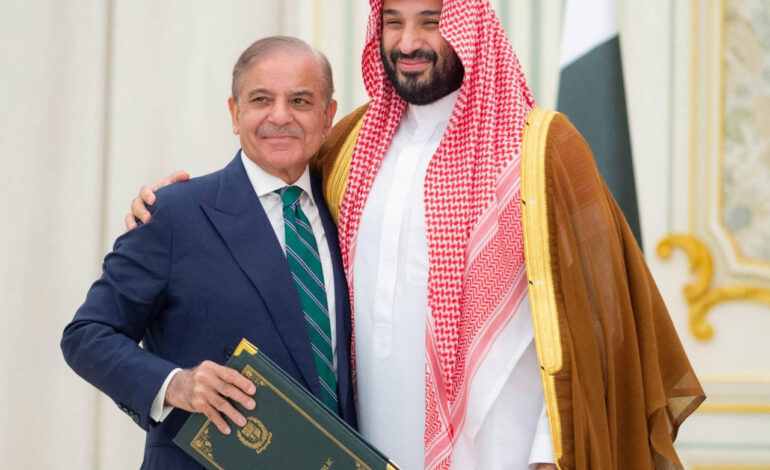Saudi Arabia Forms New Defense Pact with Pakistan Amid U.S. Tensions

Saudi Arabia has signed a significant new defense agreement with Pakistan, marking a pivotal shift in its security alliances. The announcement comes just a week after Israel launched a missile strike targeting Hamas political officials in Qatar, a nation that plays a crucial role in U.S. relations within the Arab Gulf.
This defense pact signals a growing desire by the Saudi kingdom to diversify its security partnerships as confidence in U.S. commitments appears to wane. The evolving geopolitical landscape, particularly following recent military actions in the region, has prompted Saudi Arabia to seek stronger ties with other nations, particularly those that share its concerns over regional stability and security.
Strategic Shift in Alliances
The agreement with Pakistan represents a broader strategy for Saudi Arabia, which is looking to bolster its defense capabilities amid increasing tensions in the Middle East. The pact includes mutual cooperation on military training, intelligence sharing, and joint exercises, aimed at enhancing the interoperability of the two nations’ armed forces.
As Saudi Arabia navigates its security options, the backdrop of U.S. foreign policy has become a more pressing issue. Analysts suggest that the kingdom’s move to deepen its ties with Pakistan is indicative of a broader reassessment of its reliance on U.S. military support. The shift reflects a growing sentiment within the kingdom that it needs to strengthen its defense posture independently.
The recent missile attack by Israel on Hamas officials in Qatar highlights the complex security dynamics at play. The incident underscores the fragile nature of U.S.-Arab relations and the potential for escalation in regional conflicts. With Pakistan’s military expertise, Saudi Arabia aims to enhance its deterrent capabilities against perceived threats.
Implications for Regional Security
The implications of this new alliance extend beyond Saudi Arabia and Pakistan. As the geopolitical landscape continues to shift, other nations in the region may reassess their military partnerships. The Saudi-Pakistan defense pact could encourage similar alignments, altering the balance of power in the Middle East.
Furthermore, the partnership may prompt a response from other regional powers. Nations such as Iran and Turkey may recalibrate their military strategies in light of this new alliance, potentially escalating tensions further.
Saudi Arabia’s defense pact with Pakistan is a clear indication of its intent to forge new relationships that prioritize its national interests. As the kingdom seeks to navigate a complex security environment, this agreement may prove to be a significant step in redefining its role in regional and global affairs.
In conclusion, the signing of this defense agreement marks a critical juncture for Saudi Arabia as it seeks to enhance its national security framework amid evolving geopolitical challenges. The collaboration with Pakistan could serve as a foundation for future alliances, setting the stage for a new era in Middle Eastern defense cooperation.






